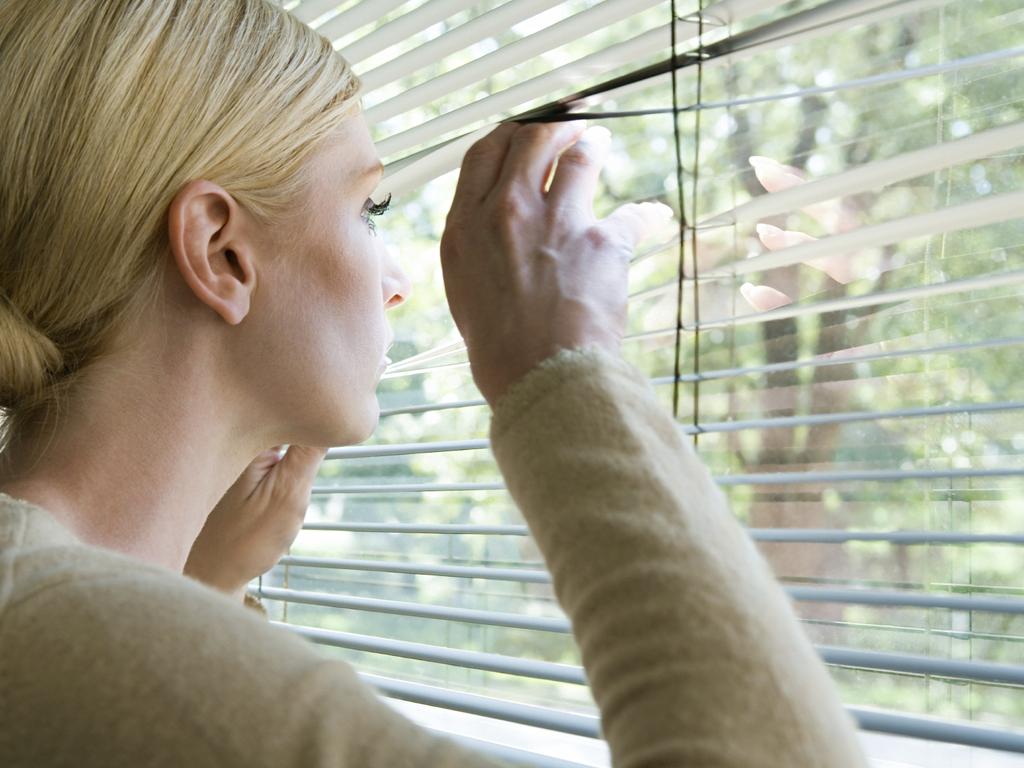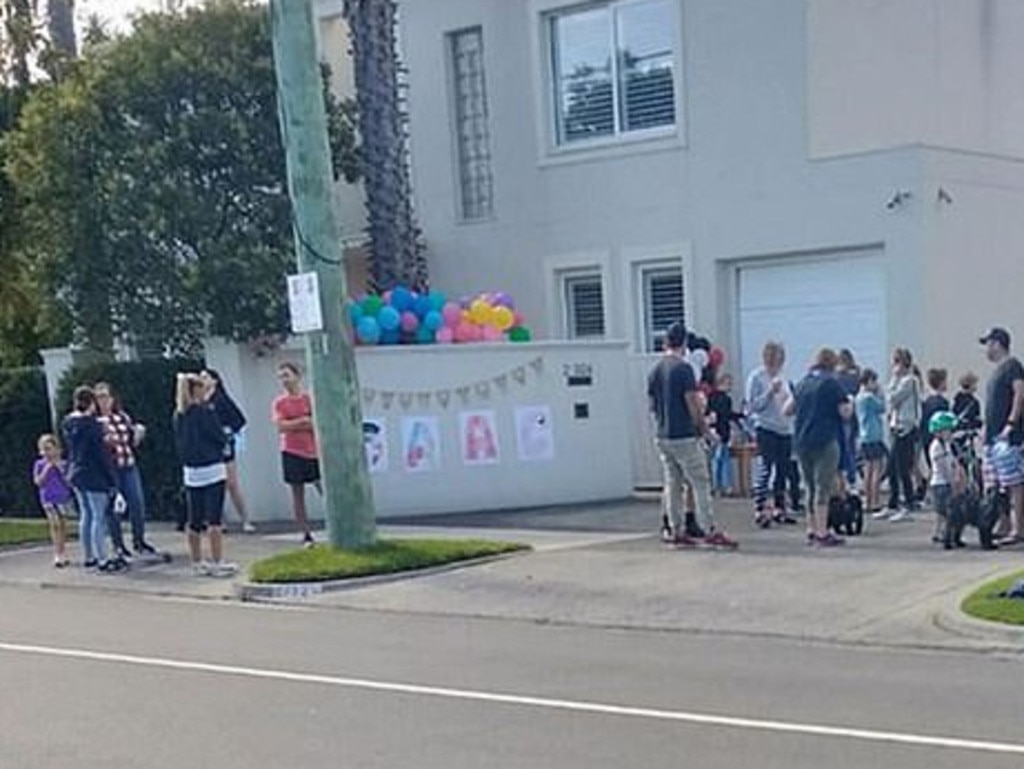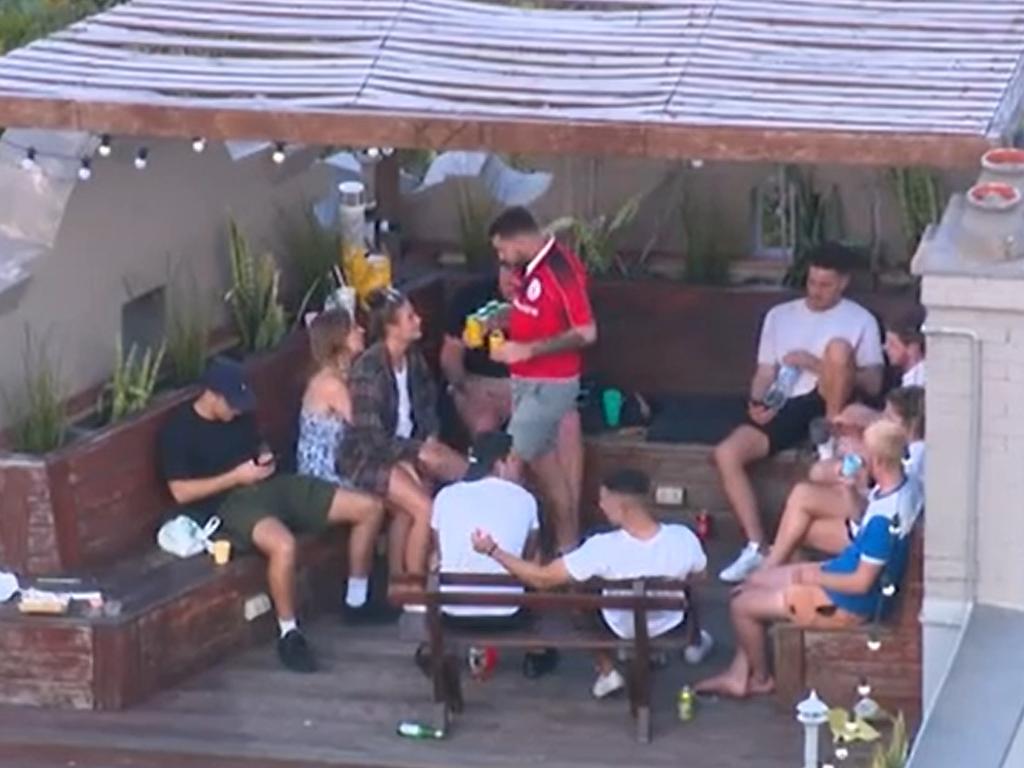
From “illegal” birthday parties to suspicious fast-food orders, Aussies picked up a very unusual pastime during the Covid pandemic.
In August 2021, with Sydneysiders under strict lockdown amid rising coronavirus cases, a newspaper headline blared, “Police Minister says public tip-offs needed to stop Covid-19 outbreak.”
David Elliott implored NSW citizens to “consider Crime Stoppers as one of the most useful and important weapons in the war against Covid”, urging them to report “illegal” family gatherings and household visits potentially contributing to the spread of the virus.
“The extent of your freedom depends on the case numbers,” then-Premier Gladys Berejiklian warned millions of locked-down residents.
Throughout the pandemic, in NSW and across the country, Australians eagerly complied.
Nosy neighbours called police on birthday parties and family gatherings.
Concerned citizens photographed and publicly shamed each other for not wearing masks.
Businesses even dobbed in their own customers.
In mid-2020, Melbourne restaurant owner Salvatore Micali posted a photo of an order for nine pizzas on Facebook, asking a local community group whether he should notify the police.
“Somebody is having a party I assume,” he wrote. “Definitely a shame. Put yourself in my shoes, what would you do?”
Mr Micali told the ABC that the person on the phone sounded young, and that at 8pm it seemed too late for a normal household order.
“I played my role for the Richmond community,” he said, later posting to the Facebook group that “a gathering attempt was stopped”.
Earlier in 2020, a family in Beaumaris, southeast Melbourne, were slapped with a $1652 fine for throwing their eight-year-old son a birthday party.
At the time, gatherings of more than two people were banned in Victoria — and furious neighbours promptly called police on the “arrogant” parents.
“It looked like an auction there were that many people,” neighbour Claire May told Seven News. “I counted fifty. I was angry, very angry.”

In September 2020, a Twitter user posted a photo of two boys selling snacks and drinks from a stall in Ramsden Reserve “during stage four lockdown”, tagging the Yarra Council to deal with them.
“Pretty silly in my humble opinion,” he wrote. “Maybe worth sending someone down there? They didn’t listen to me. Along the Yarra Trail walking track.”
The previous month, a Melbourne playwright posted about calling the police on his neighbours for having a birthday party.
“I just saw some people arriving at a neighbour’s house for a birthday party – carrying presents and food/drinks. Do I report them?” he wrote on Twitter.
In a follow-up tweet, he wrote, “Yes, I reported them. Had to go back and get the exact address. They are a couple of streets away. Looked like other visitors had also arrived, when I walked past again.”
And in Dandenong, a late-night KFC run in cost a group of “selfish” revellers a whopping $26,000. Two ambulance workers were in the restaurant in Melbourne’s south when they saw two people ordering 20 meals at 1.30am.
The eagle-eyed ambos took down their car registration and notified police, who tracked the offending chicken lovers to a nearby townhouse, where they busted 16 people having a birthday party.
“That is ridiculous, that type of behaviour,” Victoria Police Commissioner Shane Patton said at the time. “At that amount, that is $26,000 that birthday party is costing them.”
According to UNSW Law and Justice Associate Professor Catherine Bond, “dobbing” became “Australia’s favourite emergency pastime” during Covid.
“What we see, looking at the Crime Stopper data, is that when the government creates a state of emergency, it really starts to be enthusiastically policed, including by regular people,” she told UNSW Newsroom this week.

“During Covid lockdowns, when working from home came into force, people also couldn’t help but notice what their neighbours were up to. For example, there were all these new restrictions and people had a lot more time because they were working from home. They could see what their neighbours were doing much more than they usually would.”
In 2019, there were 313,655 reports made to Crime Stoppers. In 2020 that rose by more than 100,000 to a total of 417,675, and in 2021 reports surged again to 584,985.
“This spike in the number of reports is really significant, and is just huge when you think about it,” she said.
Prof Bond’s research, published in the Alternative Law Journal, explored how contrary to the country’s modern “mateship culture”, Australians enthusiastically embraced “snitching” on one another during Covid — drawing parallels with anti-German dobbing in World War I.
Both Deputy Prime Minister Barnaby Joyce and former PM Tony Abbott were caught out not wearing face masks by members of the public, with Mr Abbott remarking that he “never thought dobbing and snitching was part of the Australian character”.
“During an emergency [however], Australia does in fact ‘become a nation of dobbers’, with the ‘dobbing and snitching’ aspects of ‘the Australian character’ firmly on display,” Prof Bond wrote.
“While some are motivated by ensuring that ‘their communities and families remain safe’, to use Elliott’s words, in other circumstances the dobbing occurs for more private, less community-spirited reasons.”
Prof Bond said in both cases the dobbing explosion was facilitated by the establishment of legal frameworks, via public health orders in the case of Covid, and the War Precautions Act 1914 during WWI.
These legal frameworks introduced during emergencies provide a “foundation for both the act of dobbing and cultural permission to dob”.
The rise in dobbing was a major driver of millions of dollars of fines handed out for breaches of public health orders, such as not wearing face masks, gathering in groups, breaching curfew or travelling more than 5km from home.
In NSW alone, police issued around 62,000 fines totalling $56.4 million between March 2020 and April 2022.
Statistics showed fines were disproportionately doled out in the most socio-economically disadvantaged areas.
Community groups have renewed calls for tens of millions of dollars in outstanding fines to be cancelled, following a damning independent review into Australia’s Covid response released last month.
“At this point there is ample proof that Covid fines have been applied unevenly and often erroneously,” Aboriginal Legal Service CEO Karly Warner said after the release of the Shergold report.
Redfern Legal Centre senior police accountability solicitor Samantha Lee said the report was “further proof that the response to the Covid pandemic is still being keenly felt by those who are experiencing high levels of social disadvantage”.
“I still have clients calling up about Covid-19 fines which are now at enforcement order stage,” she said.
“Some clients are crying due to the stress caused by the order and others feel they have no other choice but to contest at court and risk a criminal record and court costs.”
But Prof Bond warned dobbing was “likely to persist — if not increase — as the pandemic continues”.
“With additional health and climate change emergencies likely in the foreseeable future, it is arguable this behaviour — facilitated by law, and dictated by both public and personal interests — will recur as new challenges arise,” she wrote.
